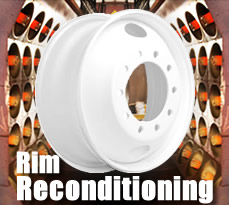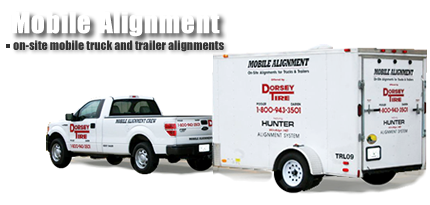
When the parts of a wheel assembly are clamped together it creates a rigid joint. During normal use, the wheel assembly is subjected to harsh conditions due to road vibrations, worn vehicle parts, and extreme temperature fluctuations, which cause movement within the wheel assembly joint. Also, rubbing of the steel parts against each other forces rust or excess paint out of the joint between the stud and nut or between dual wheels. The nut has not loosened but the clamping force drops due to the reduction in thickness of layers between the joints. This is known as Joint Settling. Loss of the clamping force then leads to greater movement within the joints leading to more material being removed from the joints. Eventually the wheel(s) is (are) loose enough that the nuts will begin to loosen, which leads to the wheel assembly coming loose from the vehicle (wheel offs) causing an extremely hazardous condition.
Wheel manufacturers recommend that wheel assemblies be re-torqued within the first 100 miles or 30 days of operation. For your safety, Dorsey Tire Company’s Inc. invoices are printed with this helpful reminder. If a tire was vehicle mounted by Dorsey Tire Company Inc., we will perform a torque checking service at no charge to insure your safety.
To insure that wheel assemblies are not over or under-torqued, Dorsey Tire Company Inc. tightens all wheel assemblies with torque wrenches and not torque sticks. We do not use torque sticks as the amount of torque they generate is based upon the static air pressure supplied to a impact gun and cannot be controlled. Over or under-torquing wheel assemblies can also lead to wheel-offs so it is our policy that all wheels be torqued to the manufacturer's specifications.














